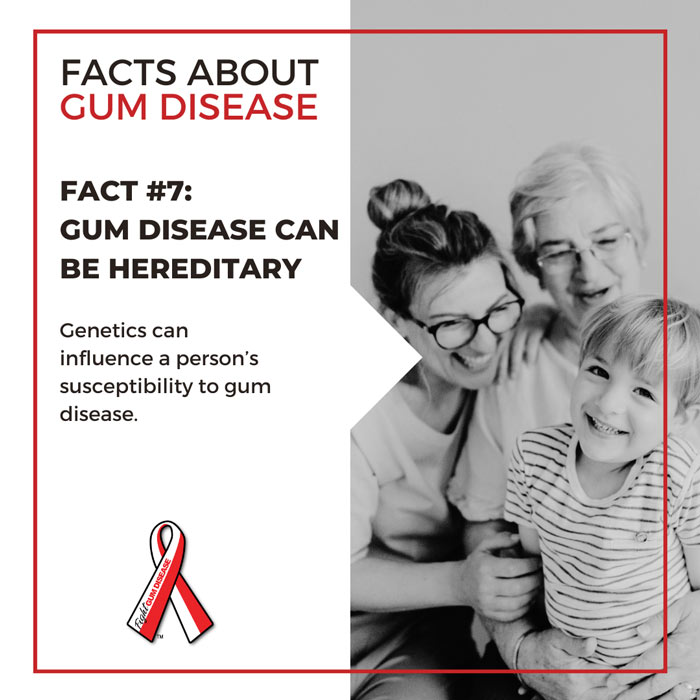
Gum disease is a common dental issue that affects millions of people around the world. It’s caused by bacterial infection and can result in serious damage to the gums and teeth if left untreated. While poor oral hygiene is a significant factor that contributes to gum disease, genetics can also play a significant role. In this blog post, we’ll explore the connection between genetics and periodontitis, and how you can protect your oral health.
What is Gum Disease?
Gum disease, also known as periodontal disease, is a bacterial infection that affects the gums and supporting structures of the teeth. It’s caused by the accumulation of plaque and tartar on the teeth, which can irritate the gums and lead to inflammation. If left untreated, gum disease can progress to periodontitis, a more severe form of the disease that can cause bone and tooth loss.
The Role of Genetics
While poor oral hygiene is a leading cause of gum disease, genetics can also play a significant role. Researchers have identified several genes that are associated with an increased risk of developing periodontitis. These genes are involved in regulating the immune system’s response to bacterial infection and inflammation, which can impact the severity of gum disease.
However, it’s important to note that genetics is only one factor that contributes to gum disease. Other factors such as smoking, poor diet, and stress can also increase the risk of developing periodontitis.
Preventing Gum Disease
While you can’t change your genetics, there are several steps you can take to protect your oral health and prevent gum disease. The most important step is to practice good oral hygiene. This includes brushing your teeth twice a day, flossing daily, and using an antiseptic mouthwash to kill bacteria.
In addition to practicing good oral hygiene, it’s also important to maintain a healthy lifestyle. Eating a balanced diet that’s rich in fruits, vegetables, and lean protein can help support your immune system and reduce inflammation in the body. Quitting smoking, reducing stress, and getting regular exercise can also help protect your oral health.
If you have a family history of gum disease, it’s important to be proactive about your oral health. Schedule regular dental checkups and cleanings to catch any signs of gum disease early. Your dentist can recommend personalized strategies to help protect your oral health based on your genetics and lifestyle factors.
Conclusion
Gum disease is a common dental issue that can have serious consequences if left untreated. While genetics can play a role in the development of periodontitis, practicing good oral hygiene and maintaining a healthy lifestyle can help protect your oral health. If you’re concerned about your risk of gum disease, call us at PerioSolutions to help keep your teeth and gums healthy.
Talk to US About an Appointment